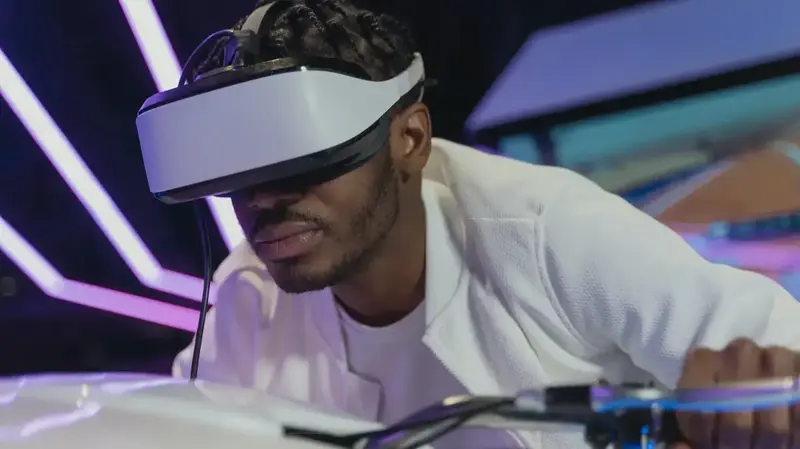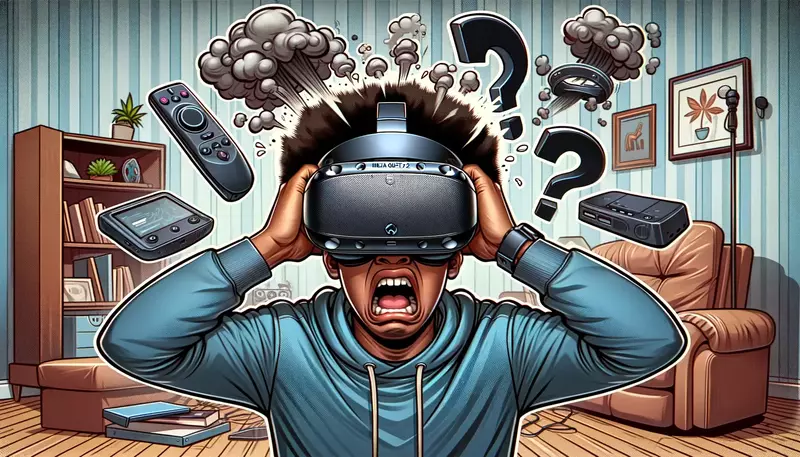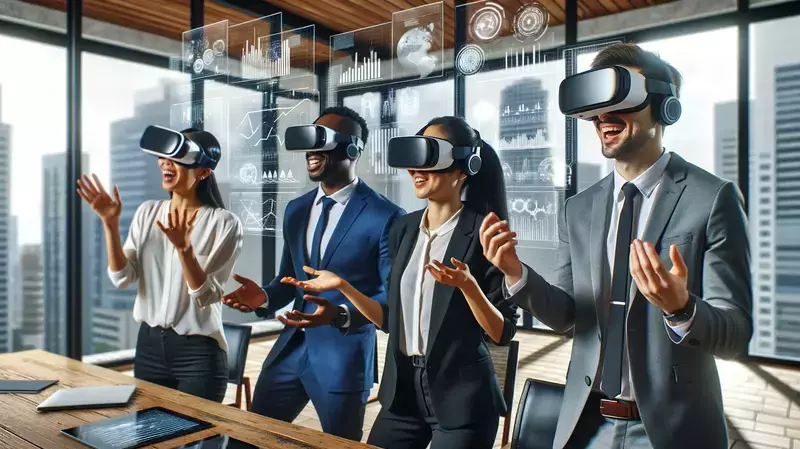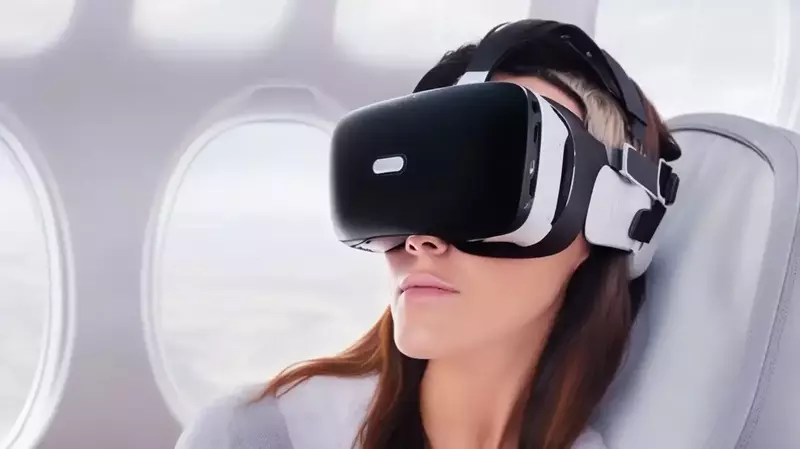Virtual Reality (VR) is an exponentially growing field, especially in the entertainment industry. New advancements are happening daily to make VR experiences more satisfying to users. Technological advances in virtual reality ask, “Can virtual reality ever become too real?”
Yes. Technological advancements in virtual reality make it harder for users to differentiate virtual reality from real-life. Most VR users are experiencing virtual worlds with crisp images and sound effects like they do in real life.
I will explain how VR integration into a real-life situation and high-quality images affects how users perceive reality.

Can Virtual Reality Ever Become Too Real?
Yes. VR advancements have philosophers and sociologists question how the line between Reality and VR keeps blurring each day. The images projected on VR headsets are realistic, and some of them show real-life locations, with all the crucial details in place.
Moreover, the new advancements by Meta (Formerly Facebook) have created real-world uses for VR. In 2014, Facebook bought a reputable VR company known as Oculus and used it to advance VR to develop real-world applications.
Meta rolled out headsets that enable people to hold virtual meetings and classes in environments that mimic real-life scenarios.
Businesses can hold meetings in a virtual board room where attendants can type notes on virtual keyboards or take notes on virtual note pads.
Moreover, you can see reactions from other employees during the meeting.
It’s hard to differentiate VR from real-life experiences if both experiences feel similar. For example, virtual meetings feel the same as real meetings, except in remote locations.
Are There Concerns About Virtual Reality Ever Becoming Too Real?
The current generation doesn’t question whether VR is real or a pretend world because life is more about experiences. What VR users experience in virtual worlds is real even though they are experiences that come from a fake world.
VR gamers get natural nausea when a camera is moving during VR sessions.
When someone laughs at something happening in VR, the laugh is genuine. The emotions individuals experience when using VR are real, and they make it hard for people to distinguish Reality from VR.
1. Isolation
The biggest concern about virtual worlds becoming too real is that individuals will spend more time in virtual worlds. Experiences from VR will feel real even when the user knows that they are in a virtual world.
The integration of Augmented Reality (AR) to VR conditions people to view experiences from virtual worlds as accurate.
Human beings are social beings, and spending too much time on VR can lead to unintentional isolation. To make matters worse, VR users may not even be aware of the isolation the virtual world cause in real-life.
VR is remaking human interactions and replacing face-to-face interactions with virtual ones.
2. Mental Health Issues
Human socialization is an integral part of preventing mental health issues. Talking face-to-face and spending time with people can alleviate loneliness and unhappiness.
There are concerns that as VR grows more realistic, people will have mental problems due to a lack of real-life interactions.
Most VR companies are pushing images and videos that show that VR interactions are the new way of communication. VR will be a standard tool in the education and business sector.
The business sector is adopting VR for interactions as more employees choose to work remotely due to the pandemic.
Overall, the concern for mental issues due to the lack of face-to-face interactions and real-life social activities is genuine.
More mental issues will hurt societies as mental issues tend to harm an individual’s overall quality of life.
3. Privacy and Virtual Monitoring
Integration of VR into real-life activities raises concerns about personal privacy and constant monitoring. It is hard to remain anonymous online when using VR, which means companies can collect more information over time.
Moreover, it’s easy to track individuals in VR and know what they are doing in the virtual world. The ability to track users in virtual reality raises the concerns that a virtual environment will be a tool to influence users to do certain activities.
Data collected can be used to infringe on an individual’s right to freedom, as VR can be a tool to control a user’s decision.
As VR becomes too realistic, ethical frameworks need to prevent businesses from infringing on individual privacy.
It might take a while for lawmakers to find ways to ensure that companies don’t use VR to influence buyer decisions or infringe on user privacy.
Can Virtual Reality Ever Become Too Real In Gaming?
Some online gamers have posed questions about how VR can affect your gaming experience when playing with your friends. Would a gamer be willing to shoot their enemy in Grand Theft Auto if the face belongs to a friend?
VR will allow gamers to create realistic avatars and many gamers are not ready to shoot their friends and what blood oozing from their bodies in VR. Most video games are violent, and gamers don’t want to see familiar faces when attacking opponents to win the game.
Although VR is yet to reach the level where gaming avatars are realistic, most gamers are not looking forward to that day.
Using realistic avatars in violent games can be more traumatizing than fun, and many gamers are happy to stay with the avatars provided by video game makers.
How Long Before VR Becomes Too Real?
In the next 5-10 years, VR will transform in ways that we can’t imagine right now. More companies are creating real-world applications for VR, and more people are happy with that trajectory.
It’s only a matter of time before VR is considered part of real-world experiences.
Real-world VR applications shift people’s mindset from using VR as a source of entertainment to an essential gadget for daily use.
At that point, it won’t be easy to differentiate the real-life experience from VR experiences because they will be intertwined.
Conclusion
Virtual reality is on a trajectory that will make it too real and impossible to differentiate VR from real-life. People will consider virtual worlds as part of real-world experiences, and the perceptions might lead to more people spending more time in virtual worlds than in reality.
I would like to know what you think about virtual reality becoming too real.

Espen
Espen is the Director of PursuitMeta and has written extensively about Virtual Reality and VR Headsets for years. He is a consumer product expert and has personally tested VR Headsets for the last decade.




Leave a Reply